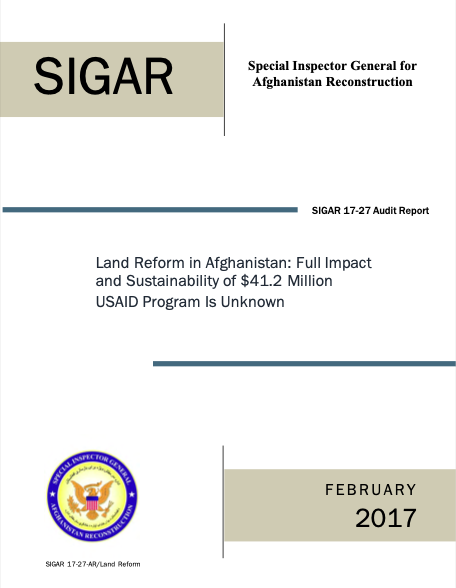Resource information
According to land reform experts, in Afghanistan, as in other developing countries, land administration is critical to economic growth and security. Since 2004, the U.S. Agency for International Development (USAID) has supported efforts to address land reform and land tenure in Afghanistan because of their effects on the economy and the lives of the Afghan people. According to a U.S. Institute of Peace land expert, the majority of Afghans do not have proper legal documentation for their land ownership, due in part to poor paper records and land titles. To address these problems and to help the Afghan government develop a sound land administration system, USAID spent a total of $96.7 million from 2004 through 2014 to reform the existing system.
The agency initiated its most recent effort—the Land Reform in Afghanistan (LARA) program— when it awarded the contract to implement the program to Tetra Tech ARD in January 2011. The contract ended in November 2014 and cost $41.2 million. LARA’s three main components were to (1) formalize and upgrade informal settlements (i.e., supporting the Afghan government on mapping plots of land to show the value and ownership of land); (2) establish a legal framework to include supporting the Afghan government establishing laws to identify, manage, and obtain revenue from Afghan government lands; and (3) build the capacity of Afghan land-related ministries.
The objectives of this audit were to assess the extent to which: (1) USAID and Tetra Tech ARD measured the LARA program’s performance and whether it achieved its goals and objectives; (2) USAID conducted its required oversight of the contract; (3) USAID and Tetra Tech ARD designed and assessed LARA’s sustainability; and (4) the challenges USAID, Tetra Tech ARD, and the Afghan government faced threaten the sustainment of U.S. land reform efforts.

